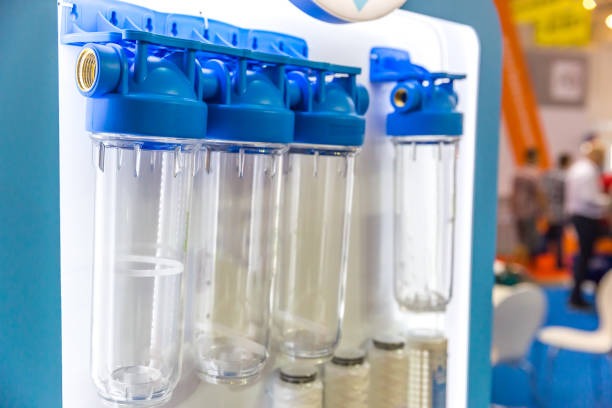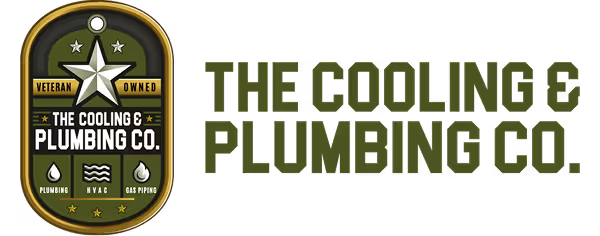Water Conditioner Installation in Paradise Valley, AZ
Hard water is a common challenge in Paradise Valley, AZ. Elevated mineral content in municipal and well supplies leads to scale buildup in plumbing, reduced appliance efficiency, mineral spotting on fixtures, and shorter equipment life. A salt-free water conditioner using scale control technology such as template-assisted crystallization (TAC) offers a low-maintenance, environmentally friendly option to protect your home’s plumbing, fixtures, and appliances without the drawbacks of traditional salt-based softeners.

Why Paradise Valley homes benefit from a salt-free water conditioner
- Local water sources often measure in the moderate to high hardness range (commonly around 8 to 18 grains per gallon, depending on exact source). That level of hardness accelerates scale formation on water heaters, showerheads, faucets, and inside pipes.
- Desert climates increase reliance on water-using systems that are sensitive to scale, like tank water heaters, irrigation systems, and whole-house plumbing networks.
- Salt-free conditioners prevent new scale formation without adding sodium to water and without the need for regeneration cycles that waste water.
How salt-free conditioners and TAC work — and how they differ from traditional softeners
- Template-assisted crystallization (TAC) conditions water by converting hardness minerals into stable, inert microcrystals. These crystals remain suspended and are far less likely to adhere to surfaces as scale.
- Salt-based ion-exchange softeners work by swapping hardness ions (calcium and magnesium) for sodium or potassium, producing "soft water" with reduced dissolved hardness.
- Key differences:
- Salt-free TAC systems do not reduce total dissolved solids or remove minerals; they change the minerals' form to limit scale.
- They require no salt, no brine tank, and no regeneration cycles, so they use less water and produce no salt discharge to landscapes or septic systems.
- TAC systems preserve the beneficial mineral content and are maintenance-light; softeners deliver the classic "soft" feel and reduce detergent use more dramatically.
Common water profile diagnostics during a site evaluation
A professional site evaluation in Paradise Valley will typically include:
- Hardness test (grains per gallon or ppm)
- Iron and manganese screening (high iron can foul TAC media)
- pH and total dissolved solids (TDS) check
- Chlorine or chloramine levels if city-treated water is present
- Flow rate and peak demand assessment
- Plumbing layout and available space near the main shutoff for installationThese diagnostics determine whether a salt-free conditioner is an appropriate solution or if pre-treatment (sediment filter, iron removal) or a traditional softener is required.
Typical installation process for Paradise Valley homes
- Location: installed on the main cold-water supply line where it protects water heaters and the rest of the home. Unit mounting is usually indoors near the main service entry or in a protected garage area.
- Pre-filtration: a sediment filter is commonly installed upstream to protect the TAC media from particulate fouling. A carbon filter may be recommended if chlorine/chloramine levels are high.
- Plumbing connections: technicians install the conditioner with isolation or bypass valves so the system can be serviced without shutting off home water supply.
- Flow and pressure check: verify that system sizing matches household peak flow to avoid pressure drop and ensure full scale-control performance.
- Commissioning: water testing and performance verification after installation, with documentation of original hardness and expected outcomes.
Expected performance for local water profiles
- Immediate benefit: new scale formation on heating elements and fixtures is dramatically reduced once conditioned water flows through systems.
- Short-term (weeks to months): existing light scale can begin to slough off, improving flow in faucets and showerheads and reducing spotting.
- Medium-term (3 to 12 months): homeowners often observe fewer plumbing clogs, improved water heater efficiency, and reduced need for lime scale cleaning.
- Note: TAC does not remove minerals, so water will not feel exactly like ion-exchanged soft water. Laundry softness and soap lather change will be less pronounced than with a salt softener.
Maintenance needs and lifetime expectations
- TAC media life: many TAC cartridges or media tanks last 5 to 10 years depending on water quality and system design.
- Filters: pre-filters typically require replacement every 3 to 12 months based on sediment load.
- Inspections: annual professional checkups are recommended to confirm media condition, seals, and plumbing connections.
- No salt refills and no brine disposal simplifies routine upkeep compared with salt softeners.
Advantages and limitations — what to expect
Advantages
- No salt usage and no wastewater from regeneration - better for landscaping and septic systems.
- Low ongoing maintenance and predictable performance in moderate hardness ranges.
- Protects water heaters, plumbing fixtures, dishwashers, and other appliances from scale buildup.
- Preserves beneficial minerals in drinking water.
Limitations
- Does not remove dissolved minerals, iron, manganese, or hardness ions from the water - so it will not produce the classic "soft water" feel.
- Not recommended as a stand-alone solution when iron levels are high or when very soft water is a household priority for laundry or skin-sensitivity reasons.
- Performance depends on proper sizing and pretreatment; poorly sized systems or untreated iron/sediment can reduce effectiveness.
Recommended applications in Paradise Valley homes
- Water heaters and boilers - prevents limescale that reduces heat transfer and efficiency.
- Faucets, showerheads and fixtures - reduces mineral buildup and visible spotting.
- Dishwashers, washing machines, and coffee/espresso equipment - lowers scale-related failures and maintenance.
- Irrigation and sprinkler systems - helps reduce emitter and valve clogging from mineral deposits.
- In homes with septic or drought-sensitive landscaping, salt-free conditioning avoids the environmental impacts linked to softener brine discharge.
Service and warranty information for homeowners
- Professional installation ensures correct sizing, proper pre-treatment, and verified performance under local water conditions. Licensed plumbers will test inlet water, document baseline hardness, and provide post-install verification.
- Manufacturer warranties for TAC or salt-free conditioner equipment vary; many cover media and tanks for 5 to 10 years. Installation workmanship warranties typically cover parts and labor for a defined period; a common standard is 1 year parts and labor for the install.
- Recommended service plan: annual inspection, pre-filter replacement as needed, and media replacement per manufacturer guidance to sustain performance and protect warranties.
Final considerations for Paradise Valley homeowners
A salt-free water conditioner using TAC is a strong choice for Paradise Valley properties that want to prevent scale, avoid salt and wastewater, and protect plumbing and appliances in a dry, mineral-rich environment. For families prioritizing the soft-water feel, or for water supplies with high iron or very hard profiles, a combined solution or a traditional softener may be a better match. A full water test and site evaluation will clarify the best approach for long-term protection and performance specific to your home.






